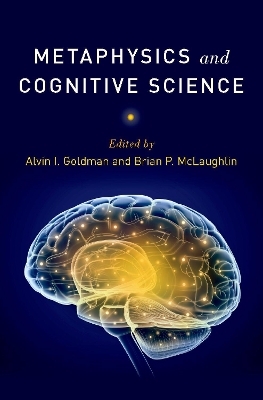
Metaphysics and Cognitive Science
Oxford University Press Inc (Verlag)
978-0-19-063967-9 (ISBN)
This volume illustrates how the methodology of metaphysics can be enriched with the help of cognitive science. Few philosophers nowadays would dispute the relevance of cognitive science to the metaphysics of mind, but this volume mainly concerns the relevance of metaphysics to phenomena that are not themselves mental. The volume is thus a departure from standard analytical metaphysics. Among the issues to which results from cognitive science are brought to bear are the metaphysics of time, of morality, of meaning, of modality, of objects, and of natural kinds, as well as whether God exists. A number of chapters address the enterprise of metaphysics in general. In traditional analytical metaphysics, intuitions play a prominent role in the construction of, and assessment of theories. Cognitive science can be brought to bear on the issue of the reliability of intuitions. Some chapters point out how results from cognitive science can be deployed to debunk certain intuitions, and some point out how results can be deployed to help vindicate certain intuitions.
Many metaphysicians have taken to heart the moral that physics should be taken into account in addressing certain metaphysical issues. The overarching point of the volume is that in many instances beyond the nature of the mind itself, cognitive science should also be consulted.
Alvin I. Goldman is Professor of Philosophy, Rutgers University. Brian P. McLaughlin is Professor of Philosophy at Rutgers University and Editor of The Oxford Handbook of Philosophy of Mind.
Introduction
Alvin I. Goldman and Brian P. McLaughlin
Section I: What Might Be the Role of Cognitive Science in Metaphysics?
Chapter 1: Time Lost, Time Regained Craig Callender
Chapter 2: Cognitive Science and Metaphysics: Partners in Debunking Jonathan Schaffer
Section II: Ethics and Cognitive Science
Chapter 3: Moral Metaphysics, Moral Psychology, and the Cognitive Sciences Peter Railton
Chapter 4: Debunking and Vindicating in Moral Psychology Shaun Nichols
Section III: God and Cognitive Science
Chapter 5: On Perceiving God: Prospects for a Cognitive Science of Religious Experiences Mark Baker and Dean Zimmerman
Chapter 6: God and Cognitive Science: A Bayesian Approach Alvin I. Goldman
Section IV: Meaning, Linguistics, and Ontology
Chapter 7: Cognitive Psychology and the Metaphysics of Meaning Mark Johnston and Sarah-Jane Leslie
Chapter 8: Natural Language and Its Ontology Friederike Moltmann
Section V: Modality and the Ontology of Bodily Feelings
Chapter 9: Modal Prospection John McCoy, Laurie Paul, Tomer Ullman
Chapter 10: Against Phenomenal Parsimony: A Plea for Bodily Feelings Frédérique de Vignemont
Section VI: Sortals and Natural Kinds
Chapter 11: Does the Identity of an Object Depend on Its Category? The Role of Sortals in Thought Lance J. Rips and Nick Leonard
Chapter 12: What the Study of Psychological Essentialism May Reveal About the World Susan A. Gelman
Section VII: Debunking and Cognitive Science
Chapter 13: Debunking Arguments in Metaethics and Metaphysics Daniel Z. Korman
Chapter 14: Cognitive Science for the Revisionary Metaphysician David Rose
Chapter 15: Unbunking Arguments: A Case Study in Metaphysics and Cognitive Science Christopher Frugé
| Erscheinungsdatum | 13.04.2019 |
|---|---|
| Verlagsort | New York |
| Sprache | englisch |
| Maße | 239 x 155 mm |
| Gewicht | 703 g |
| Themenwelt | Geisteswissenschaften ► Philosophie ► Allgemeines / Lexika |
| Geisteswissenschaften ► Philosophie ► Ethik | |
| Geisteswissenschaften ► Philosophie ► Metaphysik / Ontologie | |
| ISBN-10 | 0-19-063967-9 / 0190639679 |
| ISBN-13 | 978-0-19-063967-9 / 9780190639679 |
| Zustand | Neuware |
| Haben Sie eine Frage zum Produkt? |
aus dem Bereich


